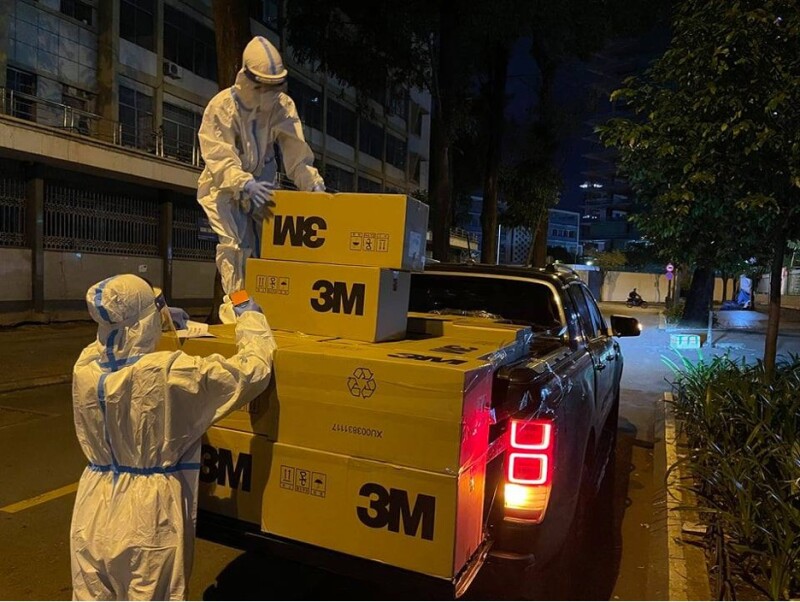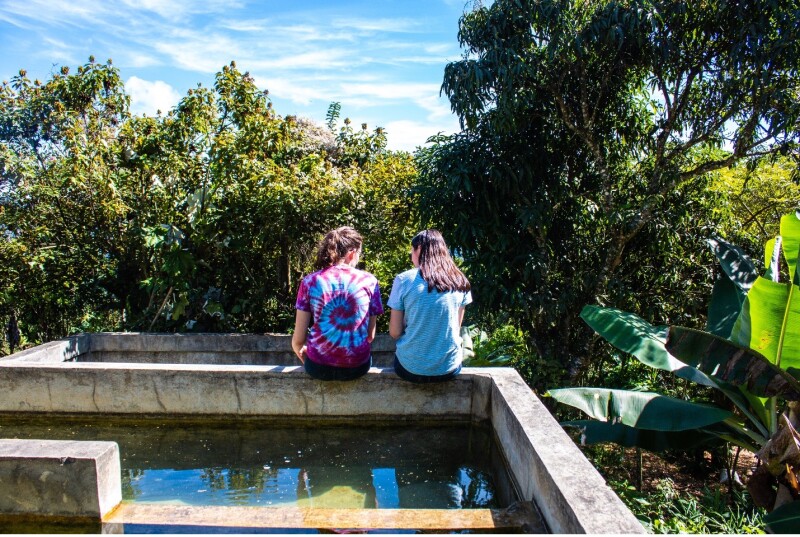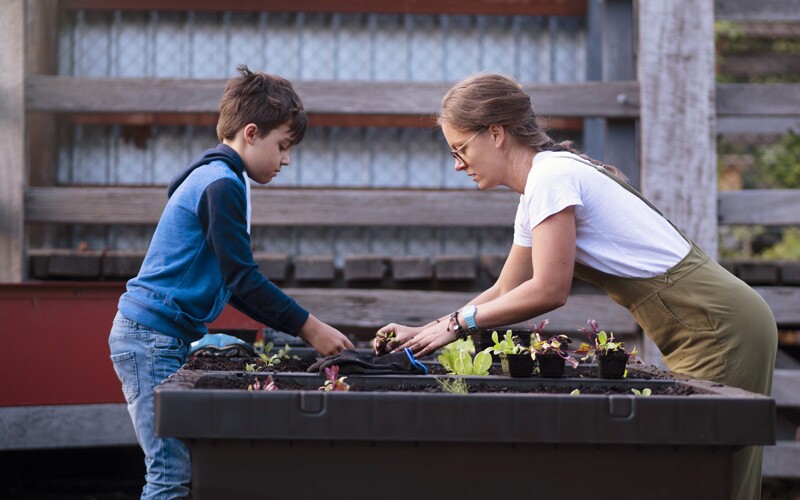People around the world choose connection through service. See how volunteering helps them feel more connected to friends, strangers, and entire communities.
When you want to feel more connected to others, try helping them. Or try working with them to help someone else. It’s a popular strategy among leaders, teachers, and others who want to build community within their groups. They know that one of the proven benefits of volunteering—beyond the results of the service itself—is to build connection.
The inspiring stories below show how people choose connection to others through service. Learn how a Vietnamese woman helped feed a city during the COVID-19 pandemic, how students partner with faraway communities in need of help, and how immigrants in Australia build lives in new places by lending a hand.
Feeding a City
When the COVID-19 pandemic hit Ho Chi Minh City, Vietnam, last July, the city was placed under hard lockdown. Residents were told not to leave their homes unless they were buying food. Nobody could enter or leave the city unless they were delivering goods.
Ngan Phan saw long lines of panicked people at the supermarkets and decided to help. With a group of family and friends, she began volunteering. First, they cooked 300 meals a day for a COVIDhospital. Then they began delivering meals and supplies to people around the city. For 14 to 16 hours a day, she focused on getting food to the poorest and most isolated neighborhoods and delivering medical supplies to hospitals and homes. This service was all done while she was keeping up with her regular job.

These efforts continued for four months. “We actually enjoyed it,” Ngan says. “Loading water or bags of goods became a game, with people of all generations working together. We turned on the music and sang along with the songs. At the end of the day, we ate together, drank tea, and talked about what we needed to do the next day.”
“This challenging time brought me a lot of good friends,” she recalls. “Everyone was so open, I felt like we have all known each other a long time. The friendships are the most valuable asset I earned from COVID. I learned so much from them, not only skills but their determination, diligence, patience, and loving-kindness.”
Building a Future
Engineering students often look for opportunities to get hands-on experience while they are still studying at school. Some volunteer with Engineers without Borders, a global organization that partners with communities that could use their help. Students help find and implement solutions to problems such as inadequate housing, water, or power.
“Working with real people on a project with real-life implications shows them why they do what they do,” says Lynn M. Rollins, who works with Engineers without Borders student volunteers at Case Western Reserve University in Cleveland, Ohio, United States. “Many say it was the most meaningful experience they had in college and that it changes how they view the world and what they want to do with their careers. Some of our students even stay connected with the communities after they graduate.”

“I think it is that sense of being a global citizen that they probably take away the most,” Lynn continues. “The students can point to something they left behind that has impact. Before there wasn’t running water in a community, and now there is. They feel connected because they have given something useful, but they have also benefited immensely during the process. They come away feeling connected to people from very different backgrounds. They realize there’s not as much difference between them and other people as they would have thought.”
Finding a New Community
More than a quarter of Australia’s residents were born elsewhere. Many have been welcomed in recent years to fill gaps in the workforce and aging population. One challenge for newcomers is to become full participants in their new communities, especially if they speak a different language than their neighbors.
In a survey, recent immigrants in Australia reported that about three-quarters of them had been helped by a volunteer to learn English, learn to drive, or settle into their new neighborhood. Over half reported donating their own time to help other migrants. Many also reported serving at a local school, sporting club, or place of worship or helping people in in other ways.

More than 90 percent of respondents felt that volunteering was an important way to deepen their connection to their new homes. Building relationships with longtime residents helped immigrants feel welcome and navigate new experiences. Friendships forged with other migrants helped people feel that they had someone to call on in times of need or crisis. Volunteering also brought other benefits, such as building job skills and networking.
Choose Connection at RootsTech
Find new ways to connect with others around the world at the free, global RootsTech event. You can connect with your relatives all over the world and learn about fascinating ways to connect with those around you. Visit RootsTech.org to enjoy everything RootsTech has to offer.
What is RootsTech?
RootsTech is a place to learn, be inspired, and make connections through family history. Hosted by FamilySearch and sponsored by other leading genealogy organizations, we have hundreds of expert classes, tips and tricks videos, and inspiring stories that can help you experience family history like never before. Visit our on-demand learning library or make plans to join us for our next virtual or in-person conference event.













